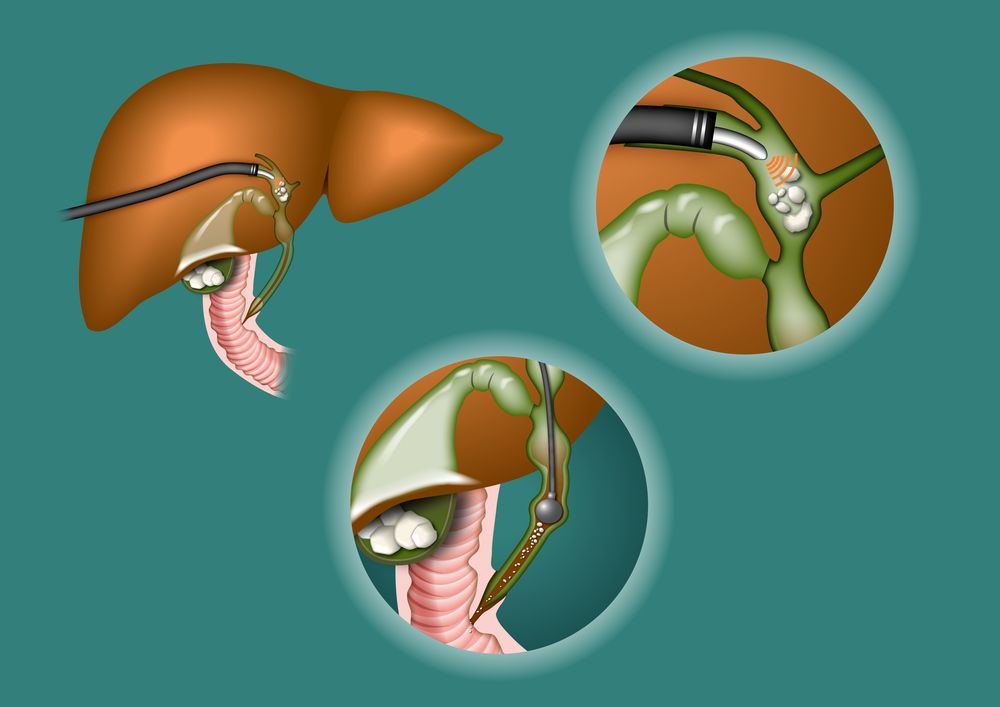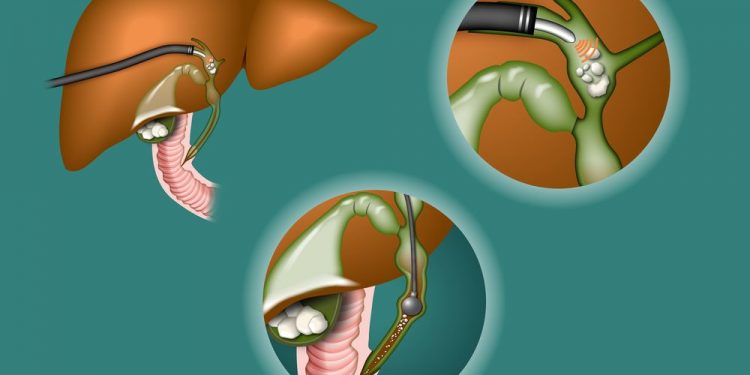Bile duct cancer, also known as cholangiocarcinoma, is a type of cancer that forms in the bile duct, a tube that connects your liver and gallbladder to your small intestine. It can be difficult to diagnose and is typically found when the bile duct has become inflamed, blocked or enlarged.
Some conditions that can increase the risk of bile duct cancer include primary sclerosing cholangitis, ulcerative colitis and cirrhosis. Other risks include exposure to certain chemicals (such as asbestos, radon and dioxin), age and obesity.
Symptoms of bile duct cancer vary by patient. Some common symptoms include jaundice (yellowing of the skin and whites of the eyes), pain in the abdomen, dark urine, light or ‘clay’ colored stool, fever and itchy skin.
Treatment for bile duct cancer usually involves surgery to remove the affected tissue and follow-up treatment to destroy any remaining cancer cells. The goal is to treat the cancer while minimizing side effects and allowing you to live as normally as possible.
In some cases, doctors can use drugs that target a specific mutation in bile duct cancer cells. These drugs can help control the disease and shrink the tumors. Doctors at the Knight Cancer Institute are leaders in this field.
Hepatic arterial infusion therapy This treatment uses a pump that injects powerful chemotherapy medicines directly into your hepatic artery, which supplies blood to most bile duct tumors. This allows your doctor to control how much chemo you receive, limiting side effects and making it easier for you to tolerate treatment.

HAI is often used in combination with hepatic radiation, which sends beams of energy through your body to kill the cancer cells. This technique can be very effective, but it is not for everyone. It can be dangerous and may cause severe side effects in some patients.
Targeted therapies, immune therapies and immunotherapy are some of the latest methods of treatment. These approaches target specific cancer cells, leaving healthy cells alone.
Immunotherapies work with your body’s own immune system to attack cancer cells, and they can be used in combination with other treatments. They can be combined with chemotherapy, surgery or other medications to reduce the chance of serious side effects and improve your quality of life.
Several types of these medications are available for people with bile duct cancer. They include FGFR2 inhibitors, such as pemigatinib (Pemazyre), infigratinib (Truseltiq) and futibatinib (Lytgobi); and IDH1 inhibitors, such as ivosidenib (Tibsovo).
Other treatments for bile duct cancer may include chemotherapy or radiation. In some cases, surgery or hepatic transplant is necessary. The aim is to get rid of the tumor as quickly as possible and to prevent it from spreading to other parts of your body.
If you are diagnosed with bile duct cancer, the team will help you decide on a treatment plan that is right for you. Your team will be made up of specialists from different medical fields, including oncologists, surgeons, hepatologists (liver experts), gastroenterologists (digestive system experts), pharmacists and palliative care experts. Your team will work together to create a treatment plan that is designed for you, taking into account your symptoms, health history, medical status and personal preferences.









